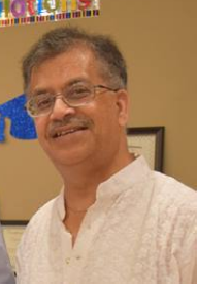The Revolutionary and Proletariat Poems of Poet-Prodigy Sukanta Bhattacharya and Some Musical Renditions by Salil Chowdhury
Part I
Monish R Chatterjee
Sukanta Bhattacharya (1926-1947) was born in the cusp of the peak period of the Indian freedom movement against British colonial occupation in Kolkata, the crucible of modern Indian and Bengali cultural renaissance. By the time Sukanta reached his teen years, India had already seen the likes of Lokmanya Balgangadhar Tilak, Surendranath Banerjee, Chittaranjan Das, Gopal Krishna Gokhale, and even the relatively young Subhas Chandra Bose at the helm of the nationwide ferment towards freeing the Indian people from the oppression of imperial tyranny.
As was characteristic of many parallel movements that occurred around the same time alongside the mainstream campaigns of the Indian National Congress under the (sometimes authoritarian) leadership of Gandhi, Bengal produced its own pockets of overt and covert forms of political resistance. Militant, idealistic groups such as the Bengal Volunteers, Anushilan, Jugantar and several others became active and operational alongside communist and socialist political movements which identified with working classes and the socially oppressed. Master-da Surya Sen, Biplabi Jatin Das and Bagha Jatin (Jatindranath Mukherjee) had already become national (and even international) legends in their own rights.
During these very potent decades, Bengali thinkers and intellectuals from the left were already blazing their own paths and making inspirational marks on a global scale outside India's political mainstream. Chief among them would be the names of M.N. Roy (one of the founders of the Mexican Communist Party and later of the philosophy of Radical Humanism), Virendranath Chattopadhyay (brother of Sarojini Naidu), Bhupendranath Datta (brother of Swami Vivekananda), Abani Mukherjee and others. One could even cite unexpected names such as Sukumar Ray, father of the illustrious film-maker, Satyajit Ray, whose writings satirically exposed government tyranny.
Into this environment, especially one that followed on the heels of several centuries of colonial occupation and oppression across the world (Africa, Asia, Latin America), and not long after the Bolshevik overthrow of Czarist Russia- Sukanta was born, and brought up in an atmosphere of intellectual ferment in Bengal. Even as a teenager, he witnessed and became familiar with, mass movements around the world in active, and in some cases, effective protests against imperial and colonial oppression and tyranny, and within what turned out to be a tragically short life, was able to identify with the struggles against poverty, discrimination, injustice and genocide. His writings bear lasting testament to his perspectives upon the public uprisings and worldwide awakening resulting from the poor and the downtrodden rising up to shake off the shackles of slavery and servitude.
As it turns out, this sensitive and creative poet was given by fate only 21 years to live- a length of time in which the vast majority in our human world barely manage to come into their own (with a few exceptions). Yet, Sukanta had put together extraordinary works of revolutionary and protest poems, identifying with causes of the downtrodden in different corners and strata of life- many of which have taken their rightful place in the annals of Bengali literature.
In what follows, I will present several of Sukanta's key protest and proletariat poems, beginning with a few which were set to exceedingly effective and popular musical creations by the highly talented composer Salil Chowdhury (1923-1995) in the late 1960s and early 1970s. Salil Chowdhury was a versatile composer and also lyricist who left a legacy of lasting musical creations in Bengali, Hindi and other Indian languages, in films and in a variety of other venues. A number of his most moving and widely acclaimed numbers were rendered in the magical baritone voice of the legendary Hemanta Mukhopadhyay; these included compositions based on poems by Sukanta, Satyendranath Dutta and other leading poets of the early 20th century. Presented below are the poems Thikana and The Runner with some interpretive remarks. I am also attaching the corresponding YouTube links for the songs in Hemanta Mukhopadhyay's voice.

Thikana (My Address) https://www.youtube.com/watch?v=tJUptd8XS2Q
Sukanta Bhattacharya (Translated by Monish R. Chatterjee)
You asked for my address, my friend
You were looking for my abode, you said.
That you have not found it yet-
Next Page 1 | 2 | 3 | 4 | 5 | 6 | 7 | 8 | 9
(Note: You can view every article as one long page if you sign up as an Advocate Member, or higher).





